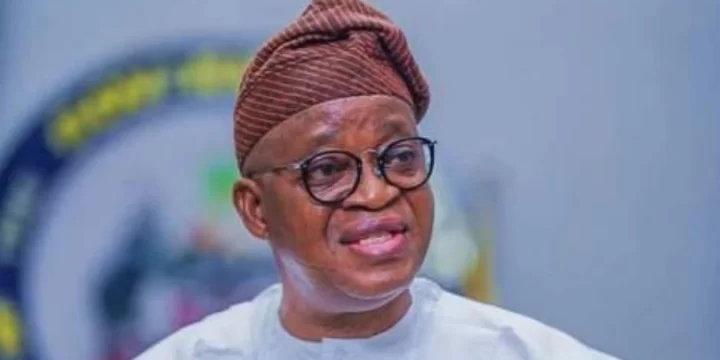In the wake of several deadly boat accidents across Nigeria’s waterways, the Minister of Marine and Blue Economy, Adegboyega Oyetola, has vowed to implement sweeping reforms aimed at improving maritime safety and preventing further tragedies. Speaking during a high-level stakeholder meeting in Abuja, the minister expressed deep concern over the increasing number of boat mishaps, describing the situation as both preventable and unacceptable.
According to the minister, the government is prioritizing the development of a comprehensive national maritime safety framework that will involve a review of existing regulations, stricter enforcement of safety standards, and an overhaul of monitoring mechanisms for inland water transportation. He stressed that the protection of lives on Nigerian waterways is a central concern of the newly created Marine and Blue Economy Ministry.

“We cannot continue to witness these heartbreaking incidents without decisive action,” Oyetola said. “Every life lost is a tragedy that could have been avoided through proper regulation, enforcement, and education. Our mission is to ensure that no Nigerian boards a vessel that is not seaworthy.”
Recent months have seen an alarming rise in boat accidents, particularly in riverine areas such as Bayelsa, Niger, Kebbi, and Lagos states, with many of the incidents attributed to overloading, poor vessel conditions, and inadequate safety equipment. Reports from the National Inland Waterways Authority (NIWA) indicate that over 300 lives may have been lost in boat accidents in the last year alone.
In response, the minister outlined several immediate interventions. These include compulsory licensing and periodic inspection of all water transport operators, mandatory life jackets for all passengers and crew, and stricter penalties for non-compliance. He also announced plans for an awareness campaign targeting riverine communities to educate passengers and operators on basic water safety protocols.
To support these initiatives, the ministry is set to collaborate with NIWA, the Nigerian Maritime Administration and Safety Agency (NIMASA), and state governments to establish a joint maritime safety task force. This task force will be charged with inspecting vessels, monitoring compliance, and issuing real-time advisories on waterway conditions.
Industry stakeholders present at the meeting, including private boat operators, community leaders, and safety experts, welcomed the reforms but called for urgent implementation. Many stressed the need for the federal government to invest in modern navigation infrastructure, such as floating buoys, radar systems, and emergency response units across major waterways.
Captain Musa Nuhu, a maritime safety consultant, said, “It’s not enough to have policies on paper. What we need is consistent enforcement and funding for safety measures. We must also train local enforcement officials and empower them to act swiftly before accidents happen.”
The minister assured the public that the reforms would not be delayed by bureaucracy. He revealed that the federal government is exploring a funding mechanism that includes public-private partnerships to equip safety officers and rehabilitate jetties and terminals. He also noted that part of the Blue Economy’s mandate is to ensure safe and sustainable use of Nigeria’s vast inland and coastal waters.
Oyetola further stressed the importance of state governments aligning with national safety regulations, warning that any state found obstructing enforcement efforts or failing to cooperate may face federal sanctions. “We must operate as one in protecting our people. Safety must never be compromised for revenue or politics,” he added.
In the long term, the ministry aims to digitize waterway monitoring through the deployment of GPS-enabled tracking systems on commercial vessels and the integration of maritime safety data into national emergency response centers. The government also plans to expand training opportunities for local boat operators through certified maritime institutions.
As part of the reform rollout, the minister is expected to visit key riverine communities and jetty locations to engage directly with residents and operators. He is also scheduled to meet with transport commissioners from affected states to develop a uniform code of conduct for water transport services.
Public reactions to the government’s renewed focus on water transport safety have been cautiously optimistic, with civil society groups and advocacy organizations urging sustained political will and transparent implementation. Many believe that unless the culture of negligence and impunity is addressed, any new reforms risk becoming ineffective.
In closing, Minister Oyetola called on all Nigerians, especially those in coastal and riverine communities, to embrace the reforms and work together to save lives. “This is a collective responsibility. We owe it to ourselves and future generations to make our waters safe,” he said.
Support InfoStride News' Credible Journalism: Only credible journalism can guarantee a fair, accountable and transparent society, including democracy and government. It involves a lot of efforts and money. We need your support. Click here to Donate
